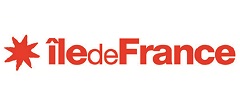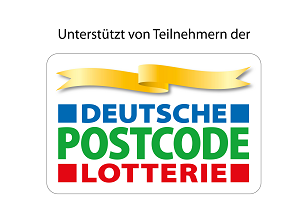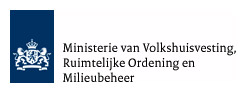ICCM2: NGOs call for urgent action on toxic chemicals at UN Conference
Chemical industry refuses to provide financial support, Political will to carry out agreement uncertain
05.06.2009 |IPEN Press Release
Geneva, Switzerland, 16 may 2009 - Public interest NGOs welcomed the limited advances made at the 2nd International Conference on Chemicals Management (ICCM2), however the lack of concrete financial support and wavering political commitment saw many urgent chemical safety issues ignored. One key advance saw delegates approve an NGO proposal to eliminate lead in paint globally and NGOs will work with governments and others to reach this goal within three years.
The Conference took up issues under a global agreement known as the Strategic Approach to International Chemicals Management (SAICM). Featured items included chemicals in products, electronic waste, and nanotechnology. Each fell short of expectations.
The “chemicals in products” issue started out as a call for information on chemicals in consumer products in answer to public concerns in many countries. At the meeting, the industry together with the US narrowed the scope to pre-existing information about databases, regulations, and industry initiatives. “At the conclusion of this process, countries and consumers will still not have the information they need to protect themselves from dangerous chemicals in products,” said Dr Mariann Lloyd-Smith, IPEN Co-Chair.
The 53 countries of the African region along with Peru proposed a collaborative program of work to address producer responsibility and prevent near end of life electrical equipment from becoming dumped as toxic waste. At ICCM2, delegates narrowed the original proposal to a single workshop to identify and assess the lifecycle of electronic products and make recommendations to ICCM3 in 2012. “Instead of aggressive collaborative action between source and recipient countries, ICCM2 gave us a single workshop. While delegates are planning this single workshop, millions of tons of toxic electronic products will be arriving on our shores,”
said Professor Jamidu Katima, IPEN Co-Chair.
The emerging concerns on nanotechnology backtracked from previous international consensus. In September 2008, 71 governments agreed on a resolution recommending precaution and labelling consumer products that contain manufactured nanomaterials. 1 Unfortunately, the US attacked the resolution and the Conference called for modest actions such as information sharing. “The actions on nanotechnology that were agreed upon at ICCM2 do not reflect the urgency of
the issue. The delegates were made aware that nanomaterials are anintergenerational risk, with nanoparticles being passed from mother to child via maternal blood. Yet these risks appear to have been ignored in the response by ICCM2," said Dr Mariann Lloyd-Smith, IPEN Co-Chair.
All delegates at ICCM2 agreed that an adequate, accessible, long-term sustainable financial mechanism is critical to achieving chemical safety. Delegates focused on development aid but one even larger potential source of financing is the global chemical industry which generates more than USD $3 trillion turnover annually.2 At ICCM2, the chemical industry repeatedly refused to contribute money directly to SAICM to help countries manage its products. “The industry wants to sell us their products, but not pay for their toxic impacts. The harm caused by the industry’s products is the reason we need SAICM in the first place,” said Professor Jamidu Katima, IPEN Co-Chair. “We join others in calling on the industry to pay their fair share.”
SAICM is currently not on track to achieve the 2020 goal. Implementation has advanced, but the pace has been slow and uneven. Public awareness of chemical safety issues remains low and inclusion of public stakeholders in relevant decision-making processes has been uneven.
IPEN still believes that SAICM has the potential to be a critical global framework to eliminate the harms caused by chemicals and remains committed to reaching the 2020 goal of a toxics free future.
1: Dakar Statement on Manufactured Nanomaterials
http://www.who.int/ifcs/documents/forums/forum6/f6_finalreport_en.pdf
For information on the NGO activities to implement SAICM, see the Citizens’ Report at
http://www.ipen.org/campaign/documents/education/citzreport_09.pdf
Contact:
Mariann Lloyd-Smith, PhD, IPEN co-chair, +006-141-362-1557 (Australia)
Professor Jamidu Katima, PhD, IPEN co-chair, +255-22-241-0753 (Tanzania)
longer cause harm to human health or to the environment. www.ipen.org 2 More than USD $3,000,000,000,000
Related News
Human Biomonitoring for Europe
Vienna, 26 September: stakeholder forum
28.09.2018
WECF sends letter to Dutch Secretary of State concerning EU policy on EDCs
In a joint statement WECF and the EDC Free Coalition ask Dutch State Secretary Dijksma to insist on major changes at the Environmental Council meeting to protect our health and environment.
21.06.2016
Commission's EDC criteria proposal: More humans will have to be harmed before action is taken
The European Commission presented today its proposal for criteria to identify endocrine disrupting chemicals (EDCs). WECF and the EDCfree Coalition condemn strongly the decision.
15.06.2016
WECF film "How to protect children from EDCs" now available in Spanish
Pregnant women know it is important to avoid alcohol, nicotine and certain foods. However, what is less well known is that many everyday products contain pollutants that can also be harmful to your baby. WECF's film gives practical advice on how to avoid exposure to EDCs. It now also available in Spanish.
13.06.2016




































